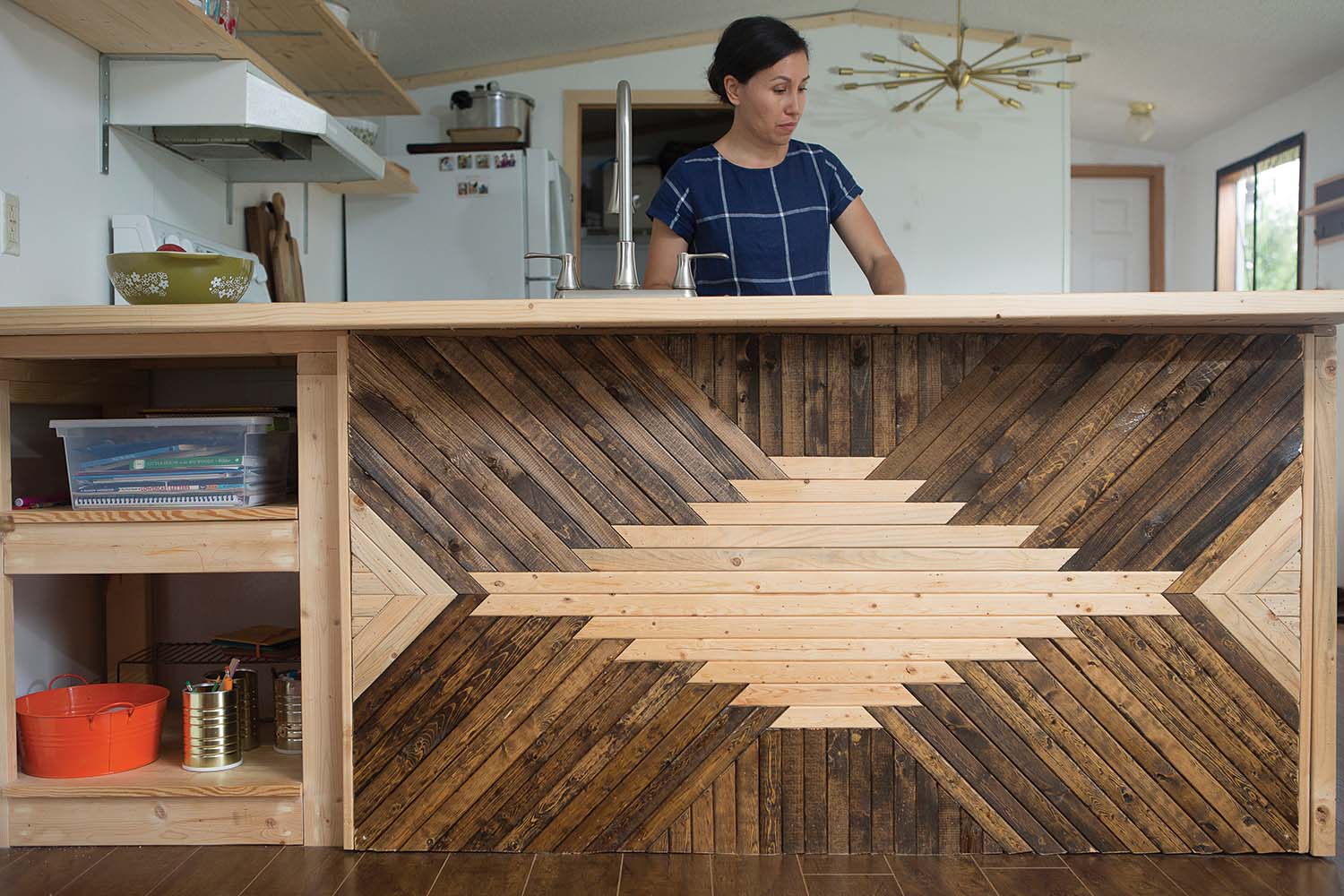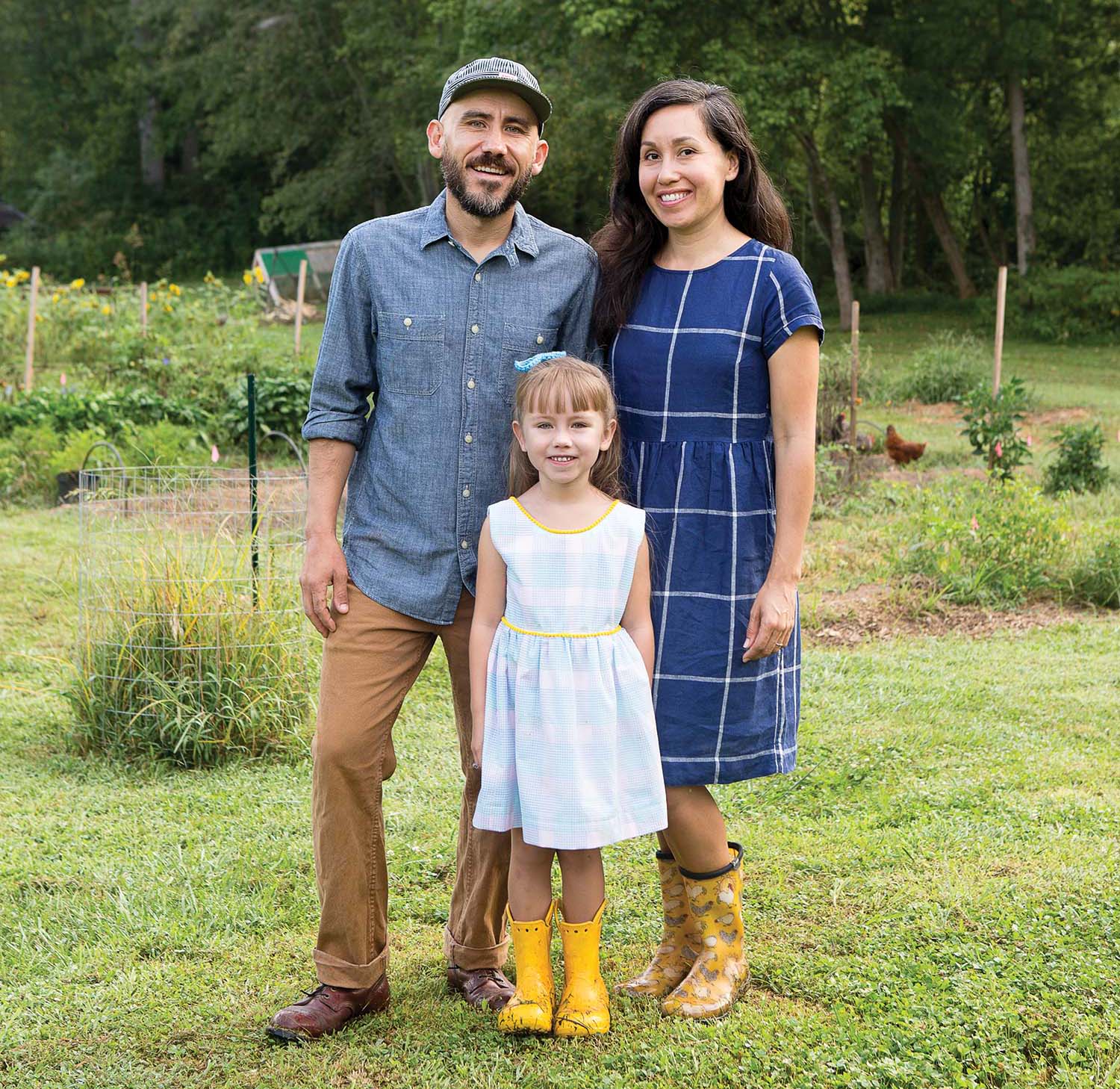
When Gilbert Jason Contreras entered remission after six months of chemo, he knew he couldn’t return to his old life. “My oncologist told me, ‘Just do what you were doing before,’” says Jason. ”But after something traumatic like that, how do you go back?”
The short answer is: you don’t. Soon after being declared cancer free — he’d been diagnosed with Hodgkin’s Lymphoma in 2009 — Jason and his wife, Lorraine, turned their Los Angeles lifestyle on its head. “We were feeling frustrated in our jobs and wanted to live more intentionally,” says Lorraine. At the time, she was commuting four hours roundtrip for a high-profile position in the fashion industry and Jason was working the same 8-to-5 he’d been working for 16 years. “I wanted to be outside, not looking at a computer screen,” he adds.
In April 2016, the couple quit their jobs and moved to Leicester in western Buncombe County to run an online general store called Sew the Land. While Lorraine mixes up herbal soaks and creams, Jason crafts wooden wall hangings in his workshop. These installations — planks of locally milled wood inlaid to create bold, geometric patterns — join their repertoire of kitchen utensils, beer-flight trays, stools, and other specialty home goods.
“I’ve always made things from random stuff in my garage,” says Jason, who also co-owns a company called Blue Ridge Conversions that transforms schoolbuses, campers, and other big vehicles into tiny homes on wheels. His 140-square-foot workshop is a far cry from an office cubicle. The unfinished floors are covered in sawdust and a generous window overlooks the 1.5-acre parcel, where Penelope, their six-year-old daughter, collects eggs from laying hens and picks cucumbers.

When the family first arrived in North Carolina, Jason began gutting their 900-square-foot home (a definite downsize from a four-bedroom Los Angeles bungalow). After installing open shelving and countertops, he decided the kitchen island still needed some flair. “I could’ve put a piece of wood on it and called it a day,” says Jason. Instead, he designed an intricate mosaic using Madison County woods, including downed trees and local lumber-yard scraps. Some pieces he stained lightly, others he charred a deep black. His 40-x-18-inch wall hangings, a smaller iteration of the kitchen project, took off from there. Many resemble quilts — wood strips meeting to create triangles, squares, and trapezoids. Other patterns, chiefly Jason’s mountain motif, are less abstract. Showing three snowcapped peaks, the installation is appropriate for 828 craft markets.
But Lorraine says locals respond well to all the designs, likening their computative angles and clean lines to a puzzle. Rarely drafting his ideas before grabbing the miter saw, Jason doesn’t perceive his art as all that esoteric. “I just want people to hear my story and see my work and feel inspired,” he says.
His narrative, he implies, is a lesson in taking risks. “Sure, we were terrified to quit our jobs and move across the country. There’s always that one ‘what if’ — what if I get sick again?” Jason continues. “But then again, what if I don’t?”
For more information, see sewtheland.com, ETSY.com (“sewtheland”), and Instagram. Jason and Lorraine Contreras also sell their wares at local handmade events and at Penland & Sons department store in downtown Marshall (50 South Main St.).
